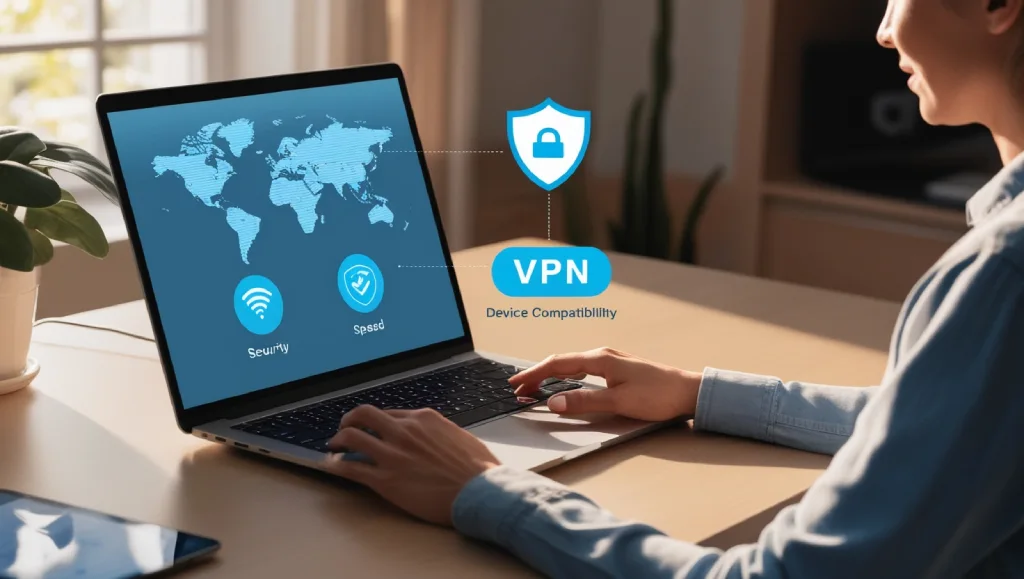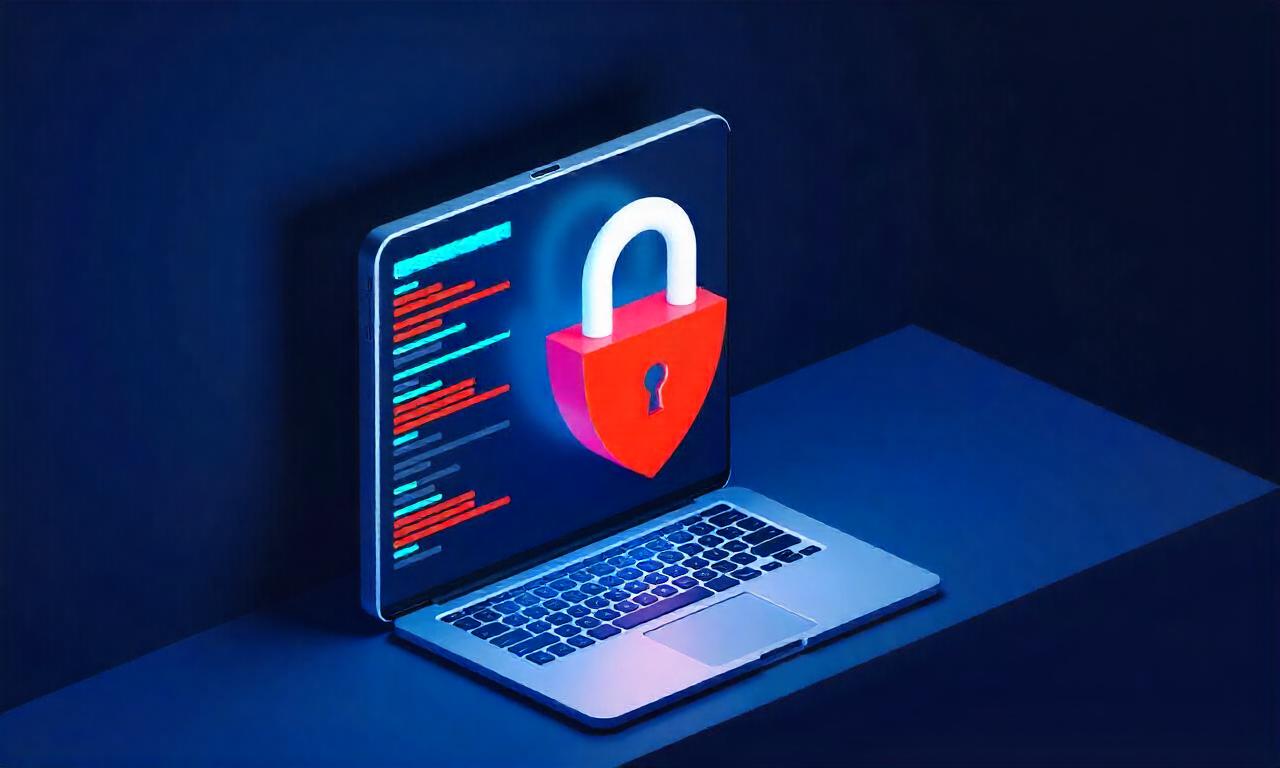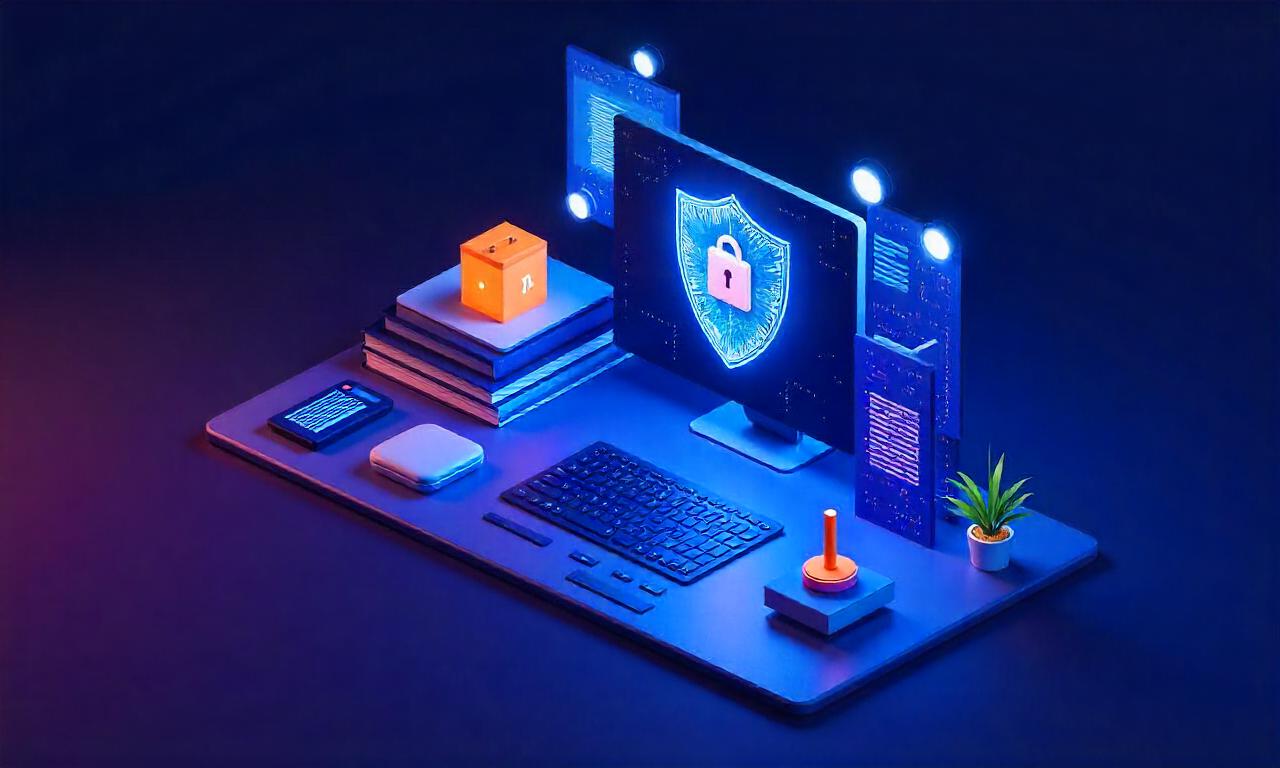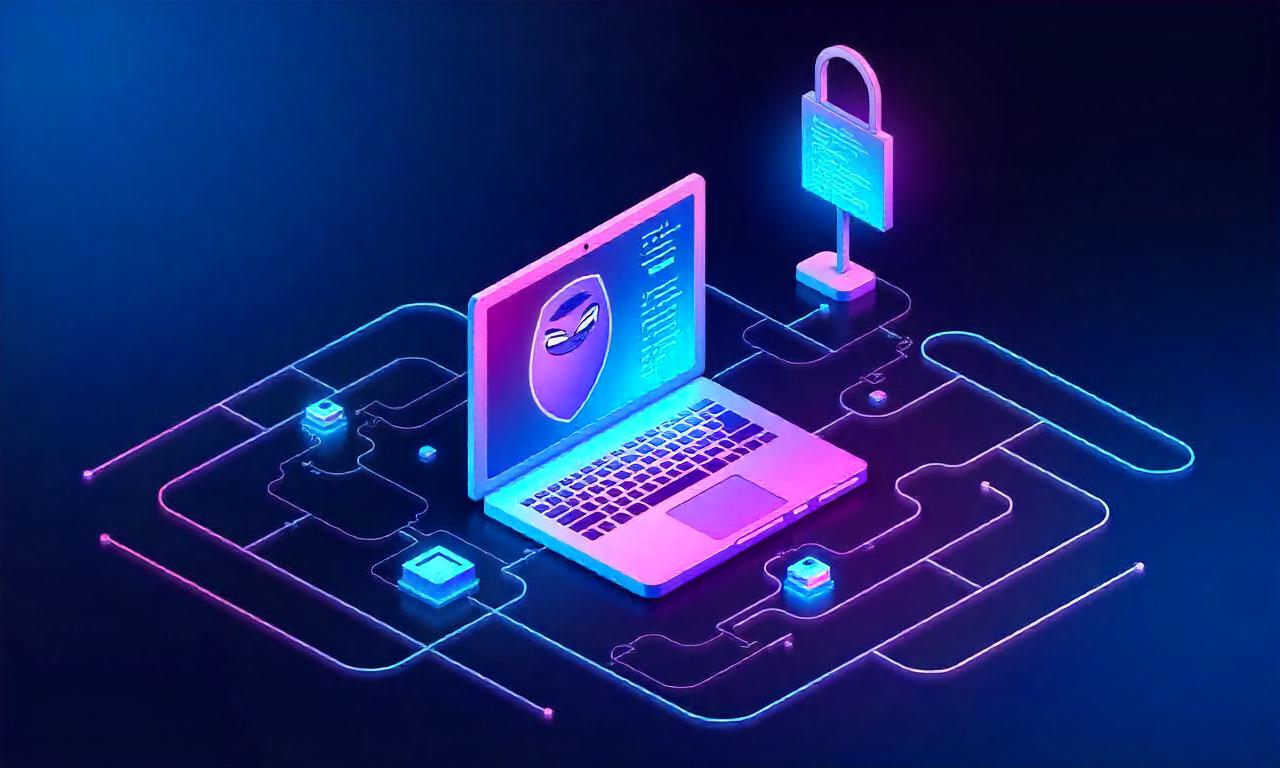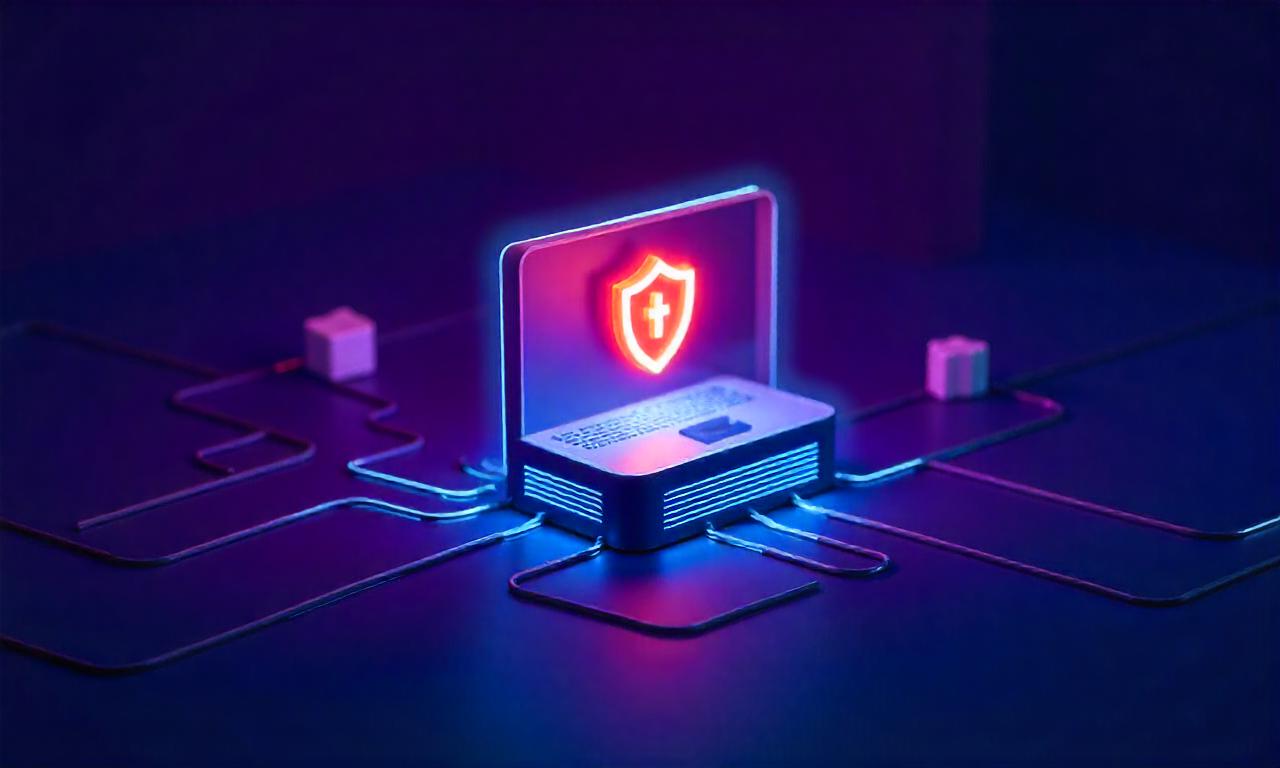Find the perfect VPN with our comprehensive guide! Learn how to choose the best VPN by considering speed, security, compatibility, and more.
In today’s digital landscape, where privacy is often at risk, a Virtual Private Network (VPN) has become essential. Whether you’re a frequent traveler, a remote worker, or simply want to protect your online privacy, a VPN is your shield.
But with so many options available, how do you choose the best VPN that meets your needs? This guide will walk you through everything you need to know to make an informed decision.
A VPN is like a private tunnel that shields your data from prying eyes while giving you the freedom to browse without restrictions.
As more people become aware of the importance of online privacy and security, VPNs have surged in popularity. However, choosing the right VPN isn’t as straightforward as it seems.
From security features to server locations, there are several factors to consider. Here’s everything you need to know to select a VPN that aligns with your needs and enhances your browsing experience.
How to Choose the Best VPN
When deciding on a VPN, you need to consider several factors. Below are some critical points to look at to make sure you’re picking a VPN that’s reliable, fast, and secure.
1. Understand Your Primary Use Case
Before diving into specific features, ask yourself: why do you need a VPN? Your primary reason will determine the type of VPN service that best suits your needs. Here are some common use cases and corresponding VPN requirements:
- Privacy and Security: If you prioritize privacy, look for a VPN with a no-logs policy, strong encryption, and a robust reputation for security.
- Streaming and Content Access: For streaming enthusiasts, a VPN with high-speed servers optimized for platforms like Netflix, Hulu, or BBC iPlayer is essential. Choose a VPN known for bypassing regional restrictions.
- Torrenting and P2P Sharing: Not all VPNs support torrenting. If this is a priority, opt for a VPN that allows P2P sharing and has dedicated servers for torrenting.
- Remote Work: Those using a VPN for work may need extra security, especially when handling sensitive data. In such cases, look for a VPN with top-notch encryption and business-friendly features.
VPN Features Based on Use Case
| Use Case | Required Features |
|---|---|
| Privacy & Security | Strong encryption, no-logs policy, kill switch |
| Streaming | High-speed servers, unblocking capabilities |
| Torrenting | P2P support, secure dedicated servers |
| Remote Work | Extra security features, stable connection |
Understanding your primary use case helps narrow down the vast VPN options available.
2. Consider Speed & Performance
One of the common complaints with VPNs is a decrease in internet speed. Here’s how you can ensure you’re picking a fast VPN:
- Server Load: A VPN’s speed is often dependent on the load of its servers. VPNs with a larger network tend to have more available bandwidth and faster speeds.
- Location of Servers: The closer the server to your location, the faster the speed. Look for a VPN provider that offers a vast number of servers worldwide.
- Protocols Used: VPNs use different protocols (e.g., OpenVPN, WireGuard, IKEv2/IPSec) that affect speed. WireGuard, for instance, is known for its high-speed performance.
A slow VPN can ruin your experience, especially if you’re using it for streaming or gaming. Ensure you opt for a VPN that promises minimal impact on your internet speed.
3. Look for Strong Security Features
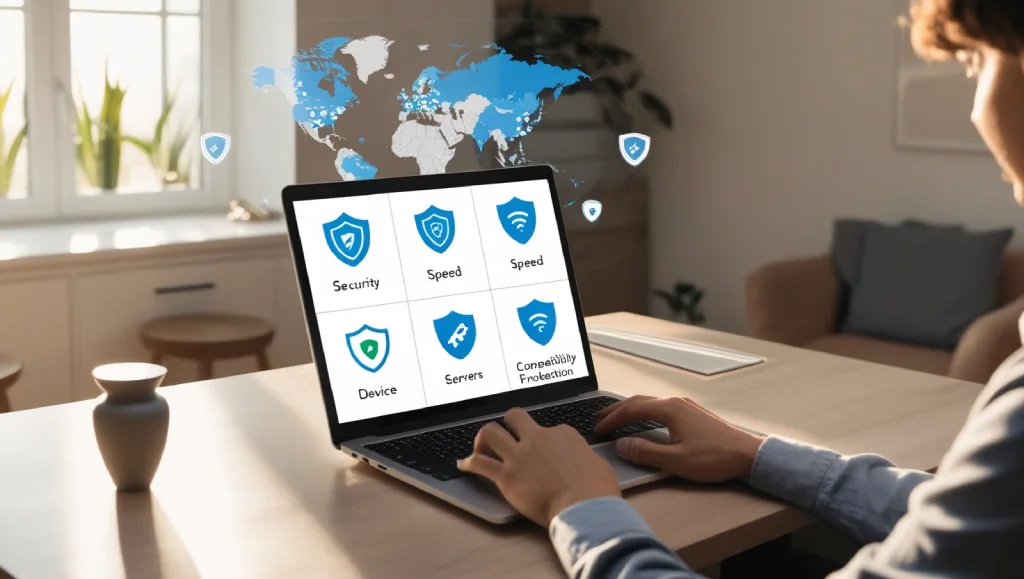
Security should be a top priority when selecting a VPN. Here are key security features to keep an eye out for:
- Encryption Standards: Look for VPNs that use AES-256 encryption, considered the industry standard.
- No-Logs Policy: A trustworthy VPN provider should not keep logs of your online activity. A strict no-logs policy ensures that your data isn’t stored or sold.
- Kill Switch: This feature disconnects you from the internet if the VPN connection drops, ensuring your data remains protected.
- Multi-Factor Authentication: Some VPNs offer an additional layer of security with two-factor authentication (2FA).
These features collectively safeguard your data, keeping you protected from hackers and snoopers.
4. Check Compatibility with Devices
Not all VPNs are compatible with every device. If you have a range of devices you want to secure, make sure the VPN supports them all:
- Operating Systems: Ensure that the VPN is compatible with major operating systems like Windows, macOS, Android, and iOS.
- Router Compatibility: Some VPNs allow installation on routers, which protects all devices connected to your network.
- Browser Extensions: Many VPNs offer browser extensions for Chrome and Firefox, providing a quick and easy way to secure your browser traffic.
Having a VPN compatible with multiple devices makes it convenient, especially if you have a mix of personal and work devices.
5. Evaluate the Server Network
The number and location of servers play a crucial role in the performance and versatility of a VPN:
- Global Coverage: A broad server network means you can bypass geographic restrictions in many countries.
- Specialized Servers: Some VPNs offer servers optimized for specific activities like streaming or torrenting.
- Dedicated IPs: A dedicated IP address can be valuable for accessing sensitive accounts securely, as it minimizes the risk of IP blacklisting.
Choosing a VPN with a wide-reaching server network enhances your access to content and boosts overall performance.
6. Examine the Logging Policy
A VPN’s logging policy is crucial in protecting your privacy:
- No-Logs Policy: A no-logs policy means the VPN provider doesn’t keep records of your online activity. Some providers even undergo audits to verify this claim.
- Data Collection: Understand what information the VPN collects. While usage logs are concerning, connection logs (e.g., bandwidth used) might not be as alarming.
Reviewing a VPN’s logging policy is essential to ensure your data stays confidential and isn’t sold to third parties.
7. Customer Support and User-Friendly Interface
Customer support can make or break your VPN experience, especially if you encounter technical issues:
- 24/7 Support: Opt for a VPN provider that offers 24/7 customer support via live chat, email, or phone.
- User Interface: A user-friendly interface makes it easy to configure settings without needing extensive tech knowledge.
- Guides and Tutorials: Some VPNs provide tutorials, FAQ sections, and setup guides to help users get started easily.
Accessible and responsive customer support can significantly improve your VPN experience.
8. Trial Periods and Money-Back Guarantees
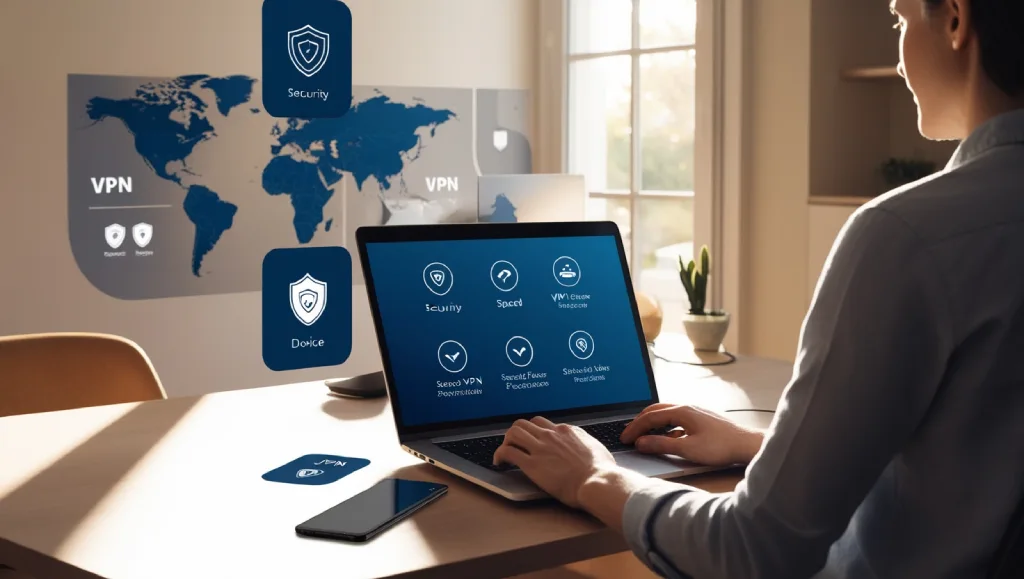
A trial period or money-back guarantee lets you test the VPN risk-free. This period is crucial for assessing performance, speed, and compatibility:
- Free Trial: Some VPNs offer limited free trials, while others provide money-back guarantees.
- Refund Policy: Ensure you understand the terms of the refund policy before subscribing.
Trying a VPN firsthand can confirm if it meets your expectations and requirements.
9. Pricing and Subscription Plans
Pricing is a major factor when choosing a VPN:
- Monthly vs. Yearly Plans: VPN providers typically offer discounts for longer subscriptions.
- Family or Business Plans: Some providers offer packages that support multiple users or devices.
- Free vs. Paid VPNs: Free VPNs can compromise on security, speed, and data limits. It’s generally safer to invest in a paid VPN service.
Evaluate the pricing plans carefully to ensure you’re getting the best deal for your needs.
Want to secure your remote connections? Follow this guide on how to set up a VPN for remote access for a smooth and safe experience.
FAQs
1. Why is a no-logs policy important for VPNs?
A no-logs policy ensures that the VPN provider does not store your browsing data, which is crucial for maintaining your privacy.
2. Can I use one VPN subscription on multiple devices?
Yes, most VPNs offer multi-device support, allowing you to secure several devices with a single subscription.
3. Do all VPNs support streaming services like Netflix?
No, not all VPNs can bypass streaming restrictions. Look for VPNs that advertise compatibility with streaming platforms.
Conclusion
Choosing the best VPN requires understanding your needs, evaluating key features, and ensuring compatibility with your devices.
With the right VPN, you can protect your privacy, access content freely, and enjoy a secure online experience. For more insights and recommendations, check out vpnpieces.com, your trusted source for all things VPN.

